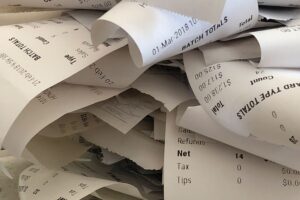Recycling Household Metallic Objects - A Complete Guide
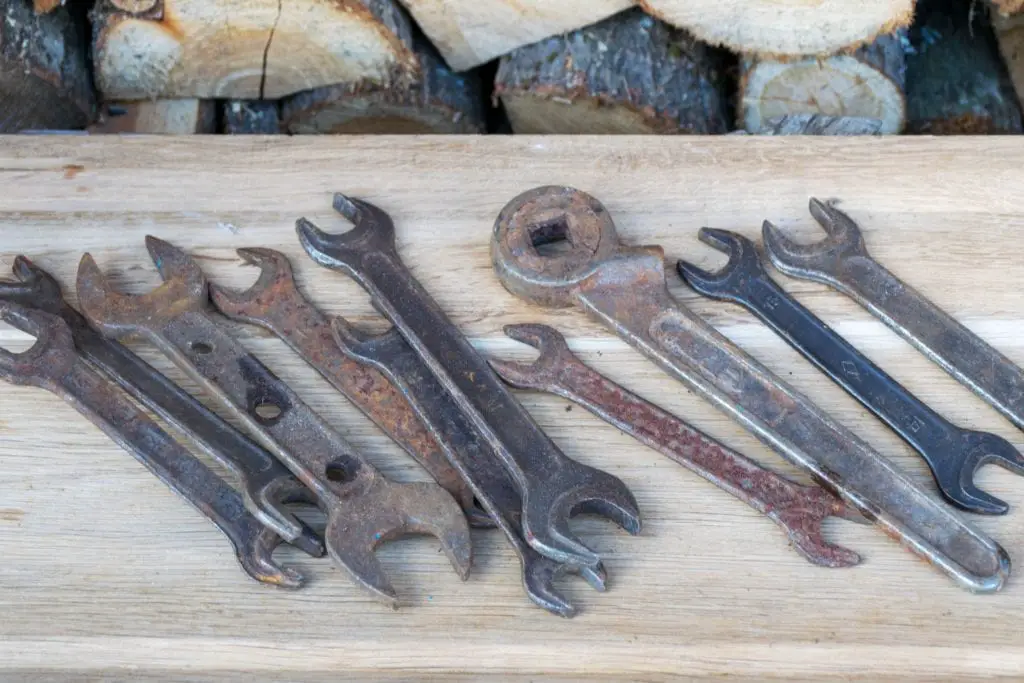
This post was last updated in 2023
Recycling household metallic objects is something we can all do. By diverting metal waste from landfills and reducing the need for raw materials extraction, you can play a crucial role in conserving natural resources.
Is metal recycled in Australia?
- Collect items that contain metal and sort them into different metal groups.
- They may then send them off to another facility for processing, while others clean and shred the metal onsite.
- From there they may be sent overseas for further processing or sent to another facility to be melted and reformed for reuse.
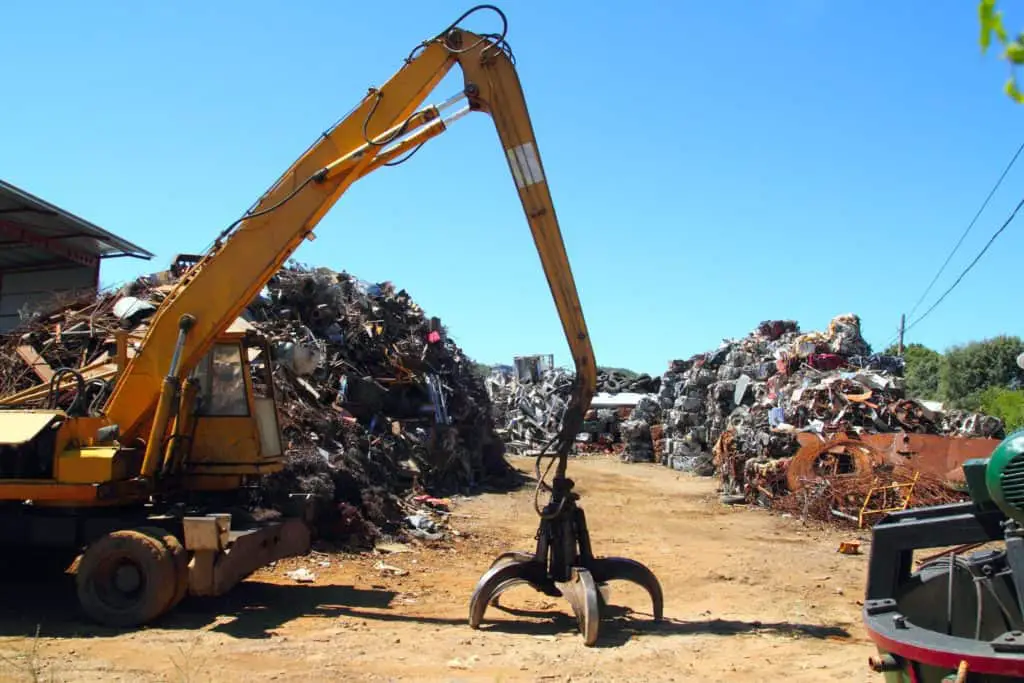
- Industrial waste
- Construction/demolition sites
- End-of-life products from businesses (cars, electronics, appliances etc.)
Steel and aluminium cans are the most commonly recycled consumer items. These items are collected through household recycling bins. Yet even with this service in place, the recycling rate amongst consumers is not as high as it could be.
- 94% of households in Australia have access to recycling facilities that can accept steel and aluminium however…
- Only 56% of cans consumed in Australia are being returned for recycling.
- Every year each Australian sends 3.5kg of steel cans to landfill – that is enough to make 40,000 fridges.
- Aerosols are one of the easiest of all steel cans to recycle, yet only 35% are currently being put in recycling bins.
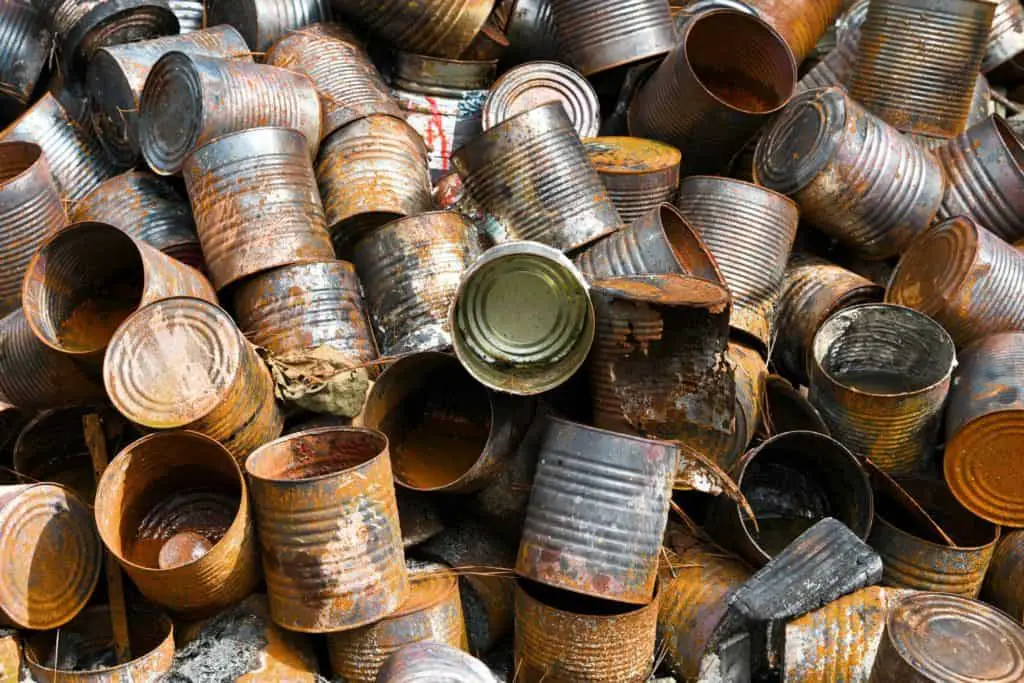
The recent introduction of the “return and earn” scheme across parts of Australia has done a lot to improve recycling rates, but there is still room for improvement.
Can you put metal in the recycling bin?
What will a scrap man take?
- Large appliances (washing machines, refrigerators, dryers etc.)
- Smaller appliances ( kettles, toasters, coffee machines etc)
- Cars and car parts (bumpers, engines, etc.)
- Copper pipes and copper wires in electronics
- Aluminium windows and doors
- Brass fixtures (like doorknobs), ornaments and musical instruments
- Stainless steel sinks and fixtures
- Iron furniture and structural materials
- Lead pipes, flashing and gutters
- Cooking utensils, pots, pans and bowls
- Tools, nuts and bolts
- Jewellery made from precious metals
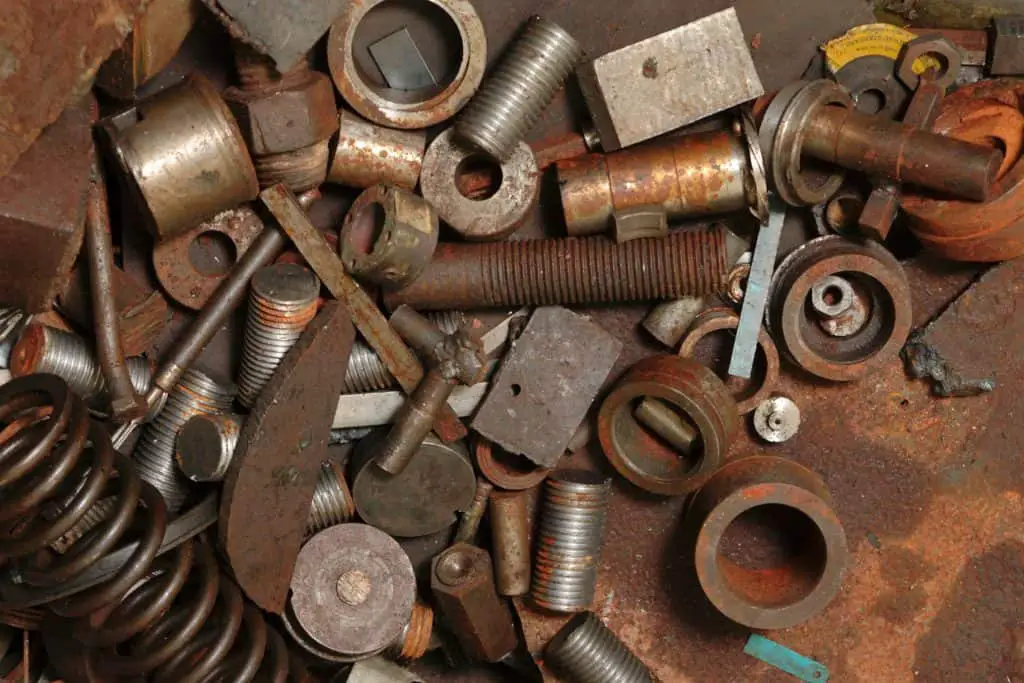
Which metals can not be recycled?
- Metal plated jewellery
- Metal paint cans that aren’t empty
- Cans containing hazardous chemicals
- Gas cylinders that aren’t empty
- Less than 50% of the item is made from metal (electronics excluded)
And apparently they will take them, even when they’re badly burnt!
Case in point – they took this badly burnt up item off my hands – pan and spatula.
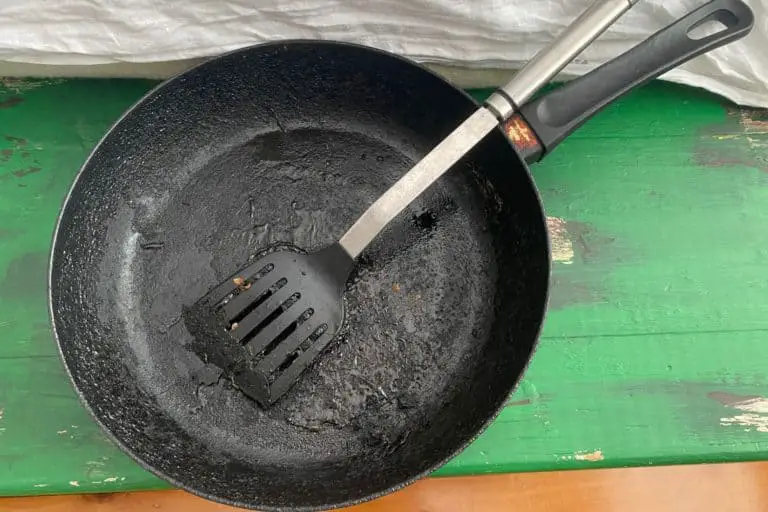
I did wonder if it really would be recycled (or were they going to throw it in the trash can after I left 
They didn’t pay me for it of course!
There aren’t many household items with uranium and plutonium but ionisation smoke detectors are something to be mindful of. They contain very small amounts of a radioactive substance that is bound to metal foil. Not all smoke detectors are “ionisation” smoke detections, but they do exist.
- Gas cylinders
- Car batteries
- Paint cans
- Motor oil cans
- Smoke detectors
- Fire extinguishers
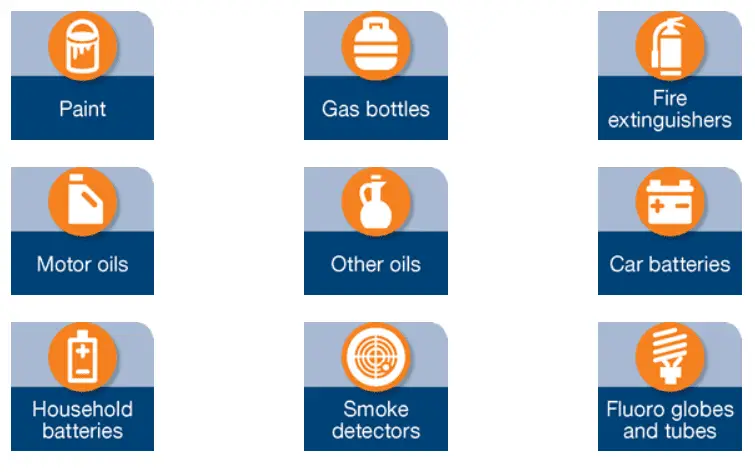
You can find your closest location here.
So there are very, very, few metallic object that should end up in your household landfill bin. Metallic objects can either go in your recycling bin, go to a scrap metal yard or end up with the council for proper recycling/ disposal.
The only metals that should end up in landfill are items that have less than 50% metal in them. Not much can be done about these composite products I’m afraid.
How do you recycle metals in Australia?
Items with hazardous chemicals can be given to your council for recycling/proper disposal.
Any item with < 50% metal will likely need to go into landfill. The exception is electronic (I’ll be covering this in another blog post). And if you can separate the metal from other components (for example, pulling out the metal spiral in a spiral notebook) then you can get around this issue.
Yellow Recycling Bin
- Aluminium cans
- Steel food cans
- Empty aerosol cans with lids off
- Aluminium foil, larger than a fist-sized ball
- Aluminium trays
- Metal lids placed securely in a steel cam
Scrap Metal Yard
- Large appliances
- Smaller appliances
- Cars and car parts
- Copper pipes and wires
- Aluminium windows and doors
- Brass fixtures, ornaments and musical instruments
- Stainless steel sinks and fixtures
- Iron furniture and structural materials
- Lead pipes, flashing and gutters
- Cooking utensils, pots, pans and bowls
- Tools, nuts and bolts
- Jewellery made from precious metals
Council Services
- Gas cylinders
- Car batteries
- Paint cans
- Motor oil cans
- Smoke detectors
- Fire extinguishers
Where are some scrap metal yards near me?
For other scrap metal sites near you, turn to Google. I have provided some quick links below, which will lead you to the search results for the metro areas listed below:
Alternatively, if you are from Sydney, Melbourne, Adelaide or Perth refer to the table below.
I put this table together because not all scrap metal yards take household waste. I checked the websites for the top rated yards in each metropolitan area around Australia and came up with the list below (search by putting in the initials of your state):
| Company Name | Location | Phone Number |
|---|---|---|
| A D L METAL PTY LTD | 47 Egerton Street, Silverwater NSW 2128 | (02) 9748 4551 |
| Western Sydney Scrap Metal | 4 Stubbs St,Auburn, NSW 2144 Australia. | 401 579 760 |
| Worldwide Metal Scrap | 2/123 Station Rd, Seven Hills NSW 2147 | 423 931 996 |
| Greenway Metals | 70 Mandoon Rd Girraween NSW 2145 Australia | 0402 448 520 |
| Chilcorp Recycling | Broadmeadows and Euroa, VIC | (03) 9416 2068 and (03) 5795 2386 |
| Scrappys | 578-580 Ballarat Road, Albion VIC 3020 Australia | 1300 668 892 |
| Super Metal Recycling | 345 Frankston – Dandenong Road, Dandenong South VIC 3175 | (03) 9706 4909 |
| Envirometal | 18-20 Strathvale Court, Caboolture, QLD 4509 | (07) 5499 4632 and (07) 5499 2932 |
| Metal Biz Recyclers | ROCKLEA, GEEBUNG,SLACKS CREEK, QLD 4123 | 0468 727 272 |
| Action Metal Recyclers | Oxley, Kingston, Toowoomba, Burleigh Heads, Banyo, Gladstone, Garbutt, Warwick and Coolum Beach, QLD | 07 3379 3444 |
| ADELAIDE METAL RECYCLYING PTY LTD | 183 Eastern Parade, Gillman, SA 5013 | 08 8123 4113 |
| Pooraka Bottle & Can Recycling Centre | 10 Ween Road, Pooraka SA 5095 | (08) 8262 3666 |
| Glen Osmond Recycle Centre | 389 Glen Osmond Road, Glen Osmond, SA | (08) 8379 9955 |
| United metal recyclers | 56-58 Raymond Ave Bayswater, Perth WA 6053 | 08 9371 7133 and 0403 333 809 |
| King Scrap Metal | 29 Truganina RoadMalaga WA 6090 | 08 6150 9424 |
| West Coast Metals | 22 Crocker Drive. Malaga. WA. 6090 | 0477 331 630 and 08 9248 2207 |
How much money can you earn by recycling metal?
The 10c per kg figure is from my local SIMS Metal recycling yard – it’s not much. And they won’t pay you if you have very small amounts or the items are in bad condition (like the poor pan pictured above).
But I’m not doing this to earn extra cash. I’m just looking to ensure a valuable resource is reused.
But you can earn some good money collecting and selling scrap metals. If you go to the website above, you will see that you can earn more than the $110 per kg ceiling I noted above (based on what you get for whitegoods).
 .
.

